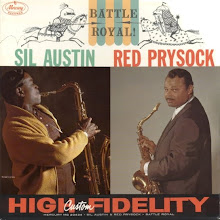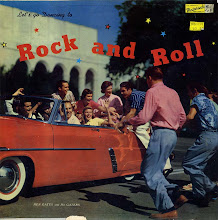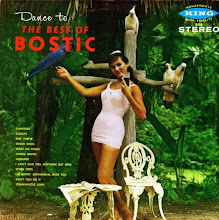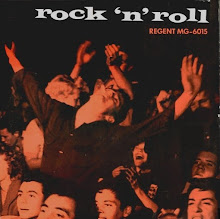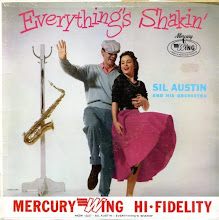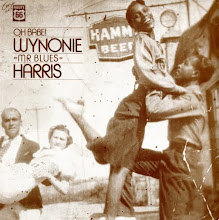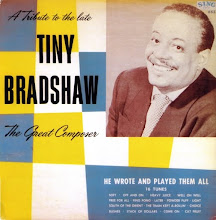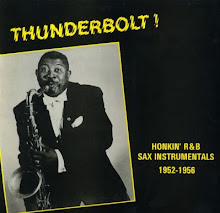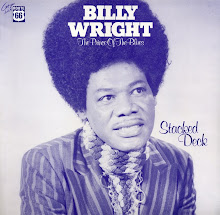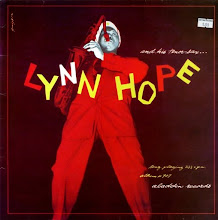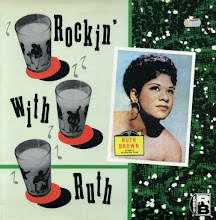Wynonie Harris: Around The Clock Blues, Parts 1 and 2:
Philo 103, recorded in Los Angeles in July, 1945.
Personnel: Wynonie "Mr Blues" Harris (vocal) accompanied by Johnny Otis' All Stars - Teddy Edwards (tenor sax); Lee Jones (piano); Stan Morgan (guitar); Bob Kesterton (bass); Johnny Otis (drums). Also at session but not audible on these sides - Howard McGhee (trumpet).
"Big Vernon": Around The Clock Parts 1 and 2:
Personnel: "Big Vernon" (Joe Turner) vocals; Pete Johnson (piano).
In our previous post we looked at the possible origins of "Around The Clock" in Trixie Smith's "My Man Rocks Me" from 1922. The Wynonie Harris two parter on Philo (soon to become Aladdin Records) kicked off a series of cover versions by Jimmy Rushing (with Johnny Otis), Numa Lee Davis (with Russell Jacquet), Willie Bryant, Pearl Traylor (with Howard McGhee) and "Big Vernon" who was Big Joe Turner going under a pseudonym.
"Well, sometimes I think I will,
Yes, and sometimes I think I won't,
Sometimes I think I will,
Yes, and sometimes I think I won't,
Sometimes I believe I do,
And then again I believe I don't."
This introduction to the Wynonie version will be familiar to rock and roll fans - Chuck Berry used it in his recording of "Reelin' And Rockin'" which I guess is a continuation of the "Around The Clock" theme, only with the activity described now being dancing at the teen hop. Times and audiences had changed by 1958.
So to our battle of the blues - Wynonie v Big Vernon. Who is the winner? Wynonie with his jazz band backing or Joe with just his old cohort Pete Johnson bangin' the boogie on the keyboard? You decide!
Okay, I can't resist getting back to Chuck, so here is "Reelin' And Rockin'" recorded at the end of 1957, with Lafayette Leake on piano, Willie Dixon on bass and Fred Below on drums. The target audience is now high school hop teenagers and not the drunken reprobates who constituted Wynonie's record buying public. But Chuck being Chuck he manages to work in a sly
"I looked at my watch, and to my surprise,
I was dancin' with a woman that was twice my size"
In 1972 Mr Berry recorded a live version at a gig in England. This time "Reelin' And Rockin'" was restored to the pantheon of "Around The Clock" as Chuck tore through a no holds barred description of a sexual marathon of truly staggering proportions. Here's the 1957 version suitable for the kids, ripped from a vinyl copy of the "One Dozen Berrys" LP:
Chuck Berry: Reelin' And Rockin':
It's half a century and a world away from Trixie Smith ...


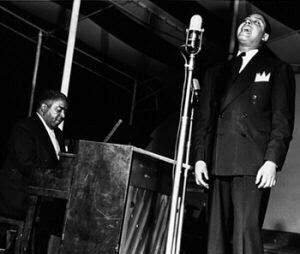






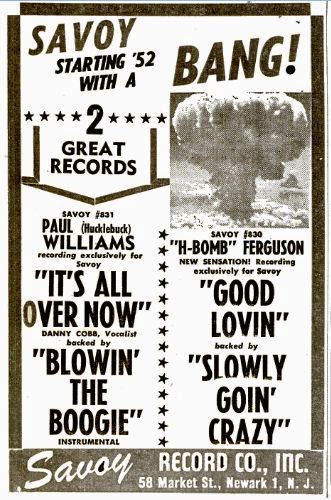























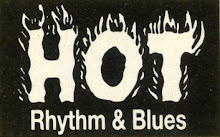
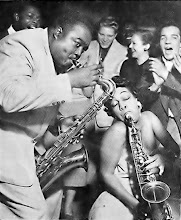






%2045%20-%20%23%20(Kaybank%20230)A.png)
.jpg)
















